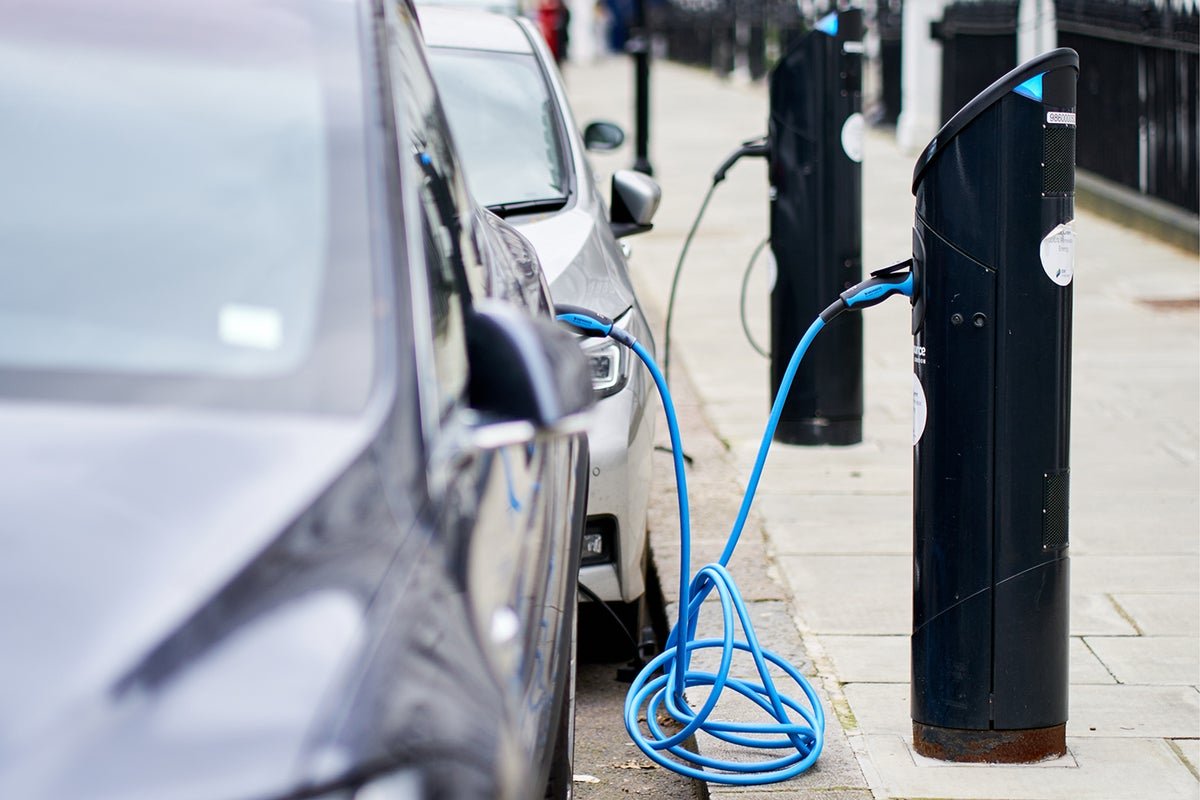The government’s relaxation of the zero emission vehicle (ZEV) mandate – the so-called ban on petrol cars – has raised important questions about the public’s reluctance to adopt the electric car as a default choice without substantial tax incentives, currently only available to business users. Industry pressure has also been important; the announcement of the closure of the Vauxhall plant at Luton by Stellantis last year was a particular catalyst for the government’s rethink.
The availability of charging points, the upfront cost of going electric, range anxiety and the future of the British automotive industry have all been widely discussed in the context of the looser strictures recently announced. But much less attention has been paid to the environmental impact…
Are the changes helpful in preventing climate change and hitting net zero CO2 emissions by 2050?
No. Other things being equal, having more petrol, diesel or hybrid cars rather than fully electric vehicles on the road necessarily means higher CO2 emissions than would otherwise be the case.
What would make a more profound difference?
Well, the original Labour policy to end sales of all new petrol, diesel and hybrid cars by 2030 would certainly have forced the pace even harder. However, because of some public reluctance to embrace electric cars, it became impractical to penalise companies for the crime of selling motor cars; the distortions were getting too big and too costly.
So it is public acceptance of EVs that would make the difference. This means:
- permanently bringing the cost of going electric down and aligning the prices of electric and petrol cars. This is already underway by the manufacturers (and presently, EVs can be much cheaper because of market distortions)
- Making it easier for people in flats and terraced housing to charge their electric cars. There are no obvious answers to this challenge
- Improving the range of EVs. The auto industry is improving these all the time, with 200 miles + now commonplace. Solid-state batteries could be transformative
- More and faster charging points. Investment is being made and the car industry is looking for breakthroughs in ultra-fast charging
- Making charging cheaper and greener. That depends on the greening of electricity generation, mostly down to the government
What does the government say about the impact of the changes to the ZEV mandate on reaching CO2 targets?
It’s vague. Because these measures aren’t legislation, there seems to be no impact assessment. Last December, the government declared: “The ZEV transition is also critical for tackling climate change. For the 11th consecutive year, domestic transport is the largest emitting sector of our economy accounting for 28 per cent of UK greenhouse gas emissions in 2022 and, as such, it must be front and centre of our efforts to accelerate to net zero and to tackle the global climate crisis. The government is committed to meeting legally binding targets for reducing greenhouse gas emissions across all sectors, including transport. These targets – known as carbon budgets – will keep us on track to deliver net zero by 2050.”
What do the experts say?
The independent Committee on Climate Change last July said: “The coming seven years will require substantial reductions in surface transport emissions. The recent rate of emissions reductions will need to increase significantly, which will require the rate of electric vehicle uptake to accelerate rapidly.” Presumably, it will find the government’s new zero emission vehicle transition less “credible” than it was then. The committee is also concerned that gains in energy efficiency in cars are being offset by the trend towards bigger, heavier cars.
What does this mean for the phase-out of domestic gas boilers?
It suggests that public and industry resistance to change can be effective in making the government adapt its policy. In fact, Ed Miliband has already said he is not now proposing a future ban on gas boilers, or at least not unless and until the replacement technology – heat pumps run on electricity – is not only greener but cheaper than the gas alternatives. Rather more retrograde, from a green perspective, was the reported recent decision to scrap plans for a 2035 ban on gas boilers in new housebuilding standards. Given that new homes are fitted with the latest insulation and designed to be ultra-fuel efficient, a heat pump should work well. The more pressing worry for those – a great majority – who occupy the UK’s older housing stock is whether a heat pump and storage battery energy storage system will be able to deliver warm rooms and hot water even in the harshest of winters. As with range anxiety and electric cars, “warmth anxiety” may prove a formidable obstacle on the path to net zero.
What do the opposition parties say?
Tory leader Kemi Badenoch declares herself a “net zero sceptic”, and the Sunak government also diluted various near-term green objectives. Reform UK rejects net zero in any case. The Liberal Democrats and the Greens think the government should go further. But climate change as an issue has been slipping down the voters’ list of concerns for some time, and that is fundamentally why net zero is enjoying much less official drive than it did in the Theresa May and Boris Johnson administrations, both enthusiastic about targets set in law, for example.




